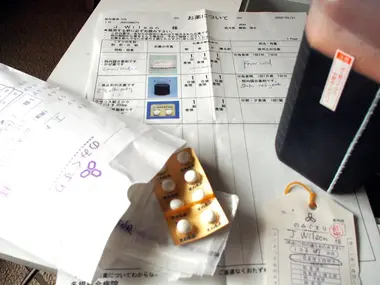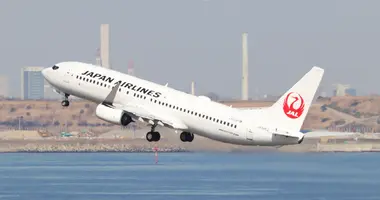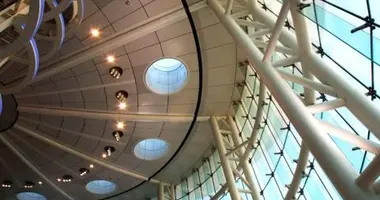How to go to the doctor in Japan?
- Published on : 29/12/2019
- by : M.H.
- Youtube
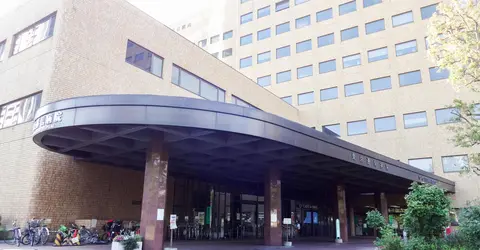
A hospital in Tokyo
Dick Thomas Johnson
Being sick in Japan, all there is to know
You don't choose the day to fall ill or get injured... Here are some tips in case you have to deal with the Japanese medical services during your trip! Some useful vocabulary in Japanese, how to find an English-speaking or even French-speaking doctor, but also all the steps to get treatment: discover our practical guide.
Essential information
The Japanese National Tourism Organization (JNTO) has on its official website a very complete guide in English on the procedure to follow if you need treatment in Japan.
- In the event of an emergency: Go to the emergency department of the nearest open hospital or call an ambulance on 119.
- If you need a consultation with a specialist: Go to a hospital or clinic. Remember to check the schedules in advance, as they vary according to the establishments.
- If you do not need to see a doctor: Go to a traditional pharmacy or one of the many drugstores, often open until late at night. Ask advice from pharmacists or sellers if in doubt because you will not find the same medicines as in the West.
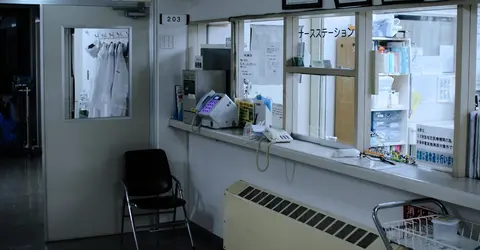
Within the hospital
Miki Yoshihito
The Japanese medical system
In the West, for some years now, it is standard practice to have a family doctor. It is the family doctor who has followed you since your childhood who takes on this role. In Japan, whether you have a bad cold, appendicitis, or a broken ankle, you're off to the hospital or the clinic! If you know which specialist you need to go to, you will need to find a clinic in advance that has the right service for your problem. Otherwise, the hospital will direct you to the appropriate establishment.
Before leaving, check that your insurance covers medical expenses abroad. Otherwise, we advise you to take out one that does. You will generally have to pay 30% of the bill, sometimes very steep! Don't forget to send it to your insurance company to get reimbursed. Also, remember to take your insurance papers before going to the doctor so as not to advance all the costs and to take cash because very few establishments accept credit cards.
Medical consultation in Japanese
If you have to or feel up to overcoming the language barrier and seeing a Japanese doctor, here's what you need to know. First of all, the number of years of study does not mean that your interlocutor masters the language of Shakespeare, so there is little chance that English can help you. You will need to fill out an information form on arrival (sometimes available in English).
The doctor will check the information on the form with you orally and give you a prescription after analyzing your symptoms and carrying out the necessary examinations. It is rare for a doctor to ask a patient to undress if it is not essential. Also, likely, you are not subjected to real auscultation, something which may surprise you. Japanese modesty shows up at surprising times. Fear not, with its life expectancy at almost 84 and its healthy life expectancy at 75, taking it to number one in the world in both rankings, Japan doesn't need to prove that its medical system is on point. The Japanese Ministry of Health declared in 2015 an impressive number of 178,000 medical establishments, including almost 8,500 hospitals and more than 100,000 clinics.

A Japanese pharmacy
Jun560
Useful medical vocabulary
To the hospital :
- Hospital: byôin病院
- Clinic : kurinikkuクリニック
- Reception: uketsuke受付
- Insurance card: hokenshô保険証
- Medical visit: shinsatsu診察
- Auscultation room: shinsatsushitsu診察室
- Payment counter: kaikeimadoguchi会計窓口
- I have pain in this place: koko ga itai desuここが痛いです
- Headache: zutsu頭痛
- Cough: seki咳
- Fever: netsu熱
- Diarrhea: geri下痢
- Constipation: benpi便秘
- Allergy: arerugiアレルギー
To the drugstore :
- Pharmacy: yakkyoku薬局
- Medicines: kusuri薬
- Analgesics/painkillers: itamedome痛み止め
- Tablets/lozenges: jôzai錠剤
"Odaiji ni" (お大事に). When you leave the doctor's office, the hospital, or the pharmacy, chances are you will hear this phrase from the medical staff. It means "Take care of yourself " and is a formula widely used in Japan!
You will also find a very useful list of medical terms on the French Embassy website.
French and English speaking doctors in Japan
Unless you have expatriate knowledge in Japan, it will not be easy to find a French or English-speaking doctor. On its website, the Embassy of France offers a list of doctors and specialists with whom you can communicate more easily.
Medicines in Japan
Be aware that the dosages are different in Japan. While we regularly take 1 gram tablets of paracetamol, the Japanese are content with 300 milligrams. Also, you won't have entire boxes of prescribed medication. When you go with your prescription to the pharmacy, you will be given the exact number of pills you need during your treatment and you will also be asked to complete a form to register for your first visit so that you know what treatment you have. taken.
Do not worry if you have not remembered the doctor's instructions, at the pharmacy you will be told exactly which stamp to take at which time of the day. Often pictures of the pills will even be printed on the prescription so as not to tangle the brushes.
Il est important de noter que certains médicaments couramment disponibles dans votre pays d'origine peuvent être interdits ou nécessiter une autorisation spéciale au Japon. Vérifiez toujours les réglementations avant d'apporter des médicaments personnels.
Coûts et remboursements des soins médicaux au Japon
Les coûts des soins médicaux au Japon peuvent varier considérablement selon le type de traitement et l'établissement :
- Consultation de base : Environ 5 000 à 10 000 yens (40 à 80 euros) pour un généraliste.
- Consultation spécialisée : De 10 000 à 20 000 yens (80 à 160 euros).
- Hospitalisation : Les coûts peuvent rapidement s'élever à plusieurs centaines de milliers de yens par jour.
Pour les personnes couvertes par l'assurance maladie japonaise, 70% des frais sont généralement pris en charge. Les 30% restants sont à la charge du patient. Pour les touristes et visiteurs de courte durée, il est fortement recommandé de souscrire une assurance voyage couvrant les frais médicaux avant le départ.
Pour obtenir un remboursement :
- Conservez tous les reçus et documents médicaux.
- Pour les assurances japonaises, le remboursement est généralement automatique.
- Pour les assurances étrangères, vous devrez probablement avancer les frais puis demander un remboursement en fournissant tous les justificatifs.
Que faire en cas d'urgence médicale au Japon ?
En cas d'urgence médicale au Japon, voici les étapes à suivre :
- Appelez les urgences : Composez le 119 pour une ambulance. Ce service est gratuit, mais assurez-vous de n'y recourir qu'en cas de réelle urgence.
- Communiquez clairement : Même si vous ne parlez pas japonais, dites "English please" ou "French please" pour demander un interprète.
- Hôpitaux d'urgence : Certains hôpitaux offrent des services d'urgence 24h/24. Renseignez-vous à l'avance sur les établissements proches de votre lieu de séjour.
- Centres d'information médicale : En cas de doute, vous pouvez contacter des services comme le AMDA International Medical Information Center pour obtenir des conseils en anglais.
Il est crucial de garder sur vous les coordonnées de votre assurance et vos informations médicales importantes (allergies, maladies chroniques, etc.) en cas d'urgence.
En conclusion, bien que le système de santé japonais puisse sembler déroutant au premier abord, il est reconnu pour son efficacité et sa qualité de soins. Avec une bonne préparation et ces informations en main, vous serez en mesure de recevoir les soins nécessaires en toute sérénité lors de votre séjour au Japon. N'oubliez pas que votre santé est primordiale et n'hésitez pas à consulter un médecin si vous en ressentez le besoin, même à l'étranger.
